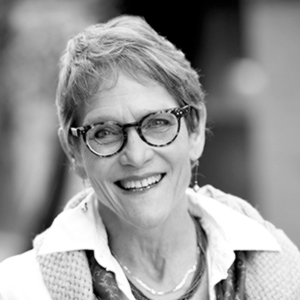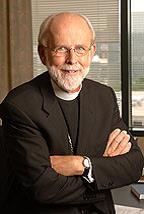In our learning with faith communities and young adults, the word “authenticity” found its way into many conversations and interviews. There are big important words that sometimes can risk losing their impact as they become more commonplace in our vocabulary. Authenticity is one of these words and it is worth pausing and digging deeper into how this word lands and shapes Christian faith and community.
A big thank you to Rev. Mark S. Hanson, with Augsburg’s Christensen Center for Vocation and former bishop of the ELCA, for putting thought to paper and sharing his reflections on the notion of “authenticity” with our learning community.
Reflections on Authenticity
by Rev. Mark S. Hanson
What words would you use to describe your congregation? When I ask that question I hear a variety of responses but rarely the word “authentic”. Yet when I listen to young adults describe the communities they value, authentic is the word I often hear.
It is more than a choice of words. I hear in the longing for authentic community a criticism of churches that seem more preoccupied with institutional survival, denominational identities, theological categories and structures of authority than with being communities of faith in which one can be vulnerable in one’s humanity and transparent about one’s identity without fear of judgment or exclusion.
It is understandable that a generation that has grown up with intense debates and divisions over who is fully welcome to participate in and lead Christian communities would long for communities that begin not with establishing criteria for acceptance but with a commitment to a radical hospitality that welcomes all.
Furthermore, I hear in the calling for authenticity a rejection of the pervasiveness of a culture of self-deception and manipulation. A culture that is often labelled “post-truth” is rejected as being antithetical to authentic community in which “my truth” and “your truth” are heard and respected. The violation of trust through sexual misconduct by those in positions of authority contributes to this distrust and disconnect from the church.
What might the longing for authenticity mean for a congregation? I believe it calls for a clear commitment that our first priority is to attentive listening rather than “we need more young people in order to help our church survive.” The yearning for authenticity begins with empathy for the challenging circumstances of another person’s life. It calls for appreciative curiosity and compassion rather than judgment. For many, authentic community will occur only after trust is established, expectations are named and wounds from painful relationships begin to heal.
Is there validity in the perception that in worship our words of confession and absolution, our pleas for Christ’s mercy and our prayers of intercession can be heard as more formulaic than heartfelt, more prescribed than authentic? The desire for authentic worship calls for more conversation than simply offering the option of contemporary or traditional worship.
I do not find it helpful to label people “Nones”. Think about what we are doing. We are describing a person as “no-one” in relationship to how we define ourselves as people of faith, religious, church members etc. An authentic community begins by letting others describe themselves in terms of their own convictions and self-understanding.
In the longing for authentic community, I hear a rejection of a culture that ascribes power and privilege on the basis of economic prosperity, gender and racial identity, sexual orientation and citizenship. I think Millennials are seeking communities –Christian and others- that are fully human which is to say communities growing more and more into the image of God whose vulnerability led God to experience the fullness of our humanity in Jesus. It is understandable why many young adults seem far more interested in Jesus than in the church. For Jesus embodies authenticity. In Jesus birth, in his tensions with family, followers and those in authority, in his weeping and pleading for mercy and in his death we see our own humanity. Jesus faithfully, graciously and tenaciously extended the embrace of God’s reign of forgiveness, love and reconciliation to those deemed unworthy, unacceptable and unlovable. It is Jesus who calls us and the Holy Spirit who empowers us to be the Beloved Community for which so many yearn.
As I listen and learn from those calling for greater authenticity I want to explore questions such as these:
- When authenticity becomes the highest ideal for which one strives and the basis upon which others are judged, what becomes of a sense of wonder, mystery and humility in response to humanity’s complexity and capacity for both good and evil?
- How do we create safe space for people to speak the truth of their lives without making authenticity, vulnerability and transparency rather than the grace of God freely given on account of Christ the basis for our being community?
- How is social media serving the longing for authentic community and changing faith communities?
- Is it possible that a priority given to striving for authenticity can lead to a life more turned in on myself than turned outward to my neighbor and God’s creation? How can the focus on authenticity keep us connected to those for whom daily bread, the cessation of violence and the search for a safe haven is their daily task?
- How do we explore the tension created by a culture described as “post-truth”, a generation yearning for authentic community calling us to respect “my truth” and “your truth” and the gospel proclamation that Jesus is the Way, the Truth and the Life?
- How does baptism, the sacrament of beginning and belonging, shape the yearning for authenticity in personal lives and community?
I am grateful that the Riverside Innovation Hub provides a marvellous context for continued conversation on how a longing for greater authenticity might transform lives of faith, communities and ministries.
Rev. Mark S. Hanson
Christensen Center for Vocation
Augsburg University
 ARTICLES & RESEARCH/REPORTS
ARTICLES & RESEARCH/REPORTS OTHER COMMUNITIES
OTHER COMMUNITIES


 Augsburg College hosted Seminary and Divinity School Day on October 28. This event allows regional college students to connect, reflect, and explore theological graduate study options with representatives from 18 top-notch seminaries and divinity schools.
Augsburg College hosted Seminary and Divinity School Day on October 28. This event allows regional college students to connect, reflect, and explore theological graduate study options with representatives from 18 top-notch seminaries and divinity schools.